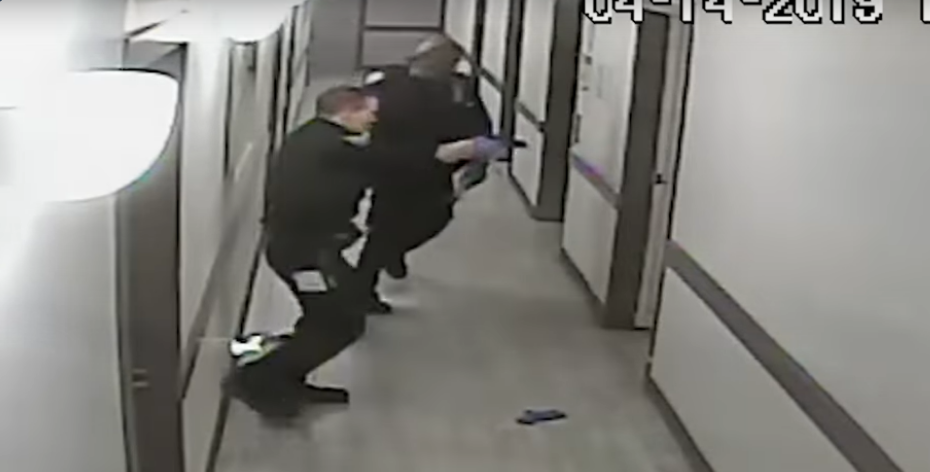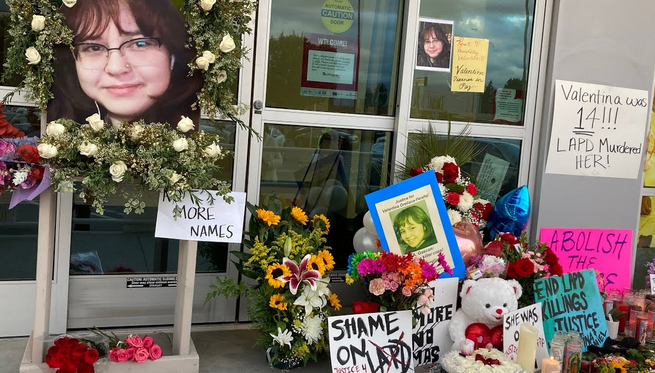Photos: YouTube
Tuesday, the United Nations Committee on the Elimination of Racial Discrimination released its concluding observations and recommendations on race discrimination in the United States, including the significant harms resulting from the mass incarceration of Black people in the southern United States.
The Southern Prisons Coalition, a group of civil and human rights organizations, submitted a report to the UN in July with the goal of soliciting concrete recommendations from the UN Committee and commitments from the United States delegation on their plans to address systemic issues in the US prison system in the southern United States. The report highlighted the racially disproportionate incarceration of Black people and racially discriminatory prison conditions, including forced and coerced labor and the use of long-term solitary confinement.
Terrance Winn, who was incarcerated at Angola prison in Louisiana for thirty years, traveled to Geneva to testify to the Committee in person on his experiences involuntarily picking cotton on the prison plantation and being sent to solitary confinement when he refused.
VIEW THE SOUTHERN PRISON COALITION REPORT
Black people are five times more likely to be incarcerated in state prisons. In southern states like Alabama, Arkansas, Florida, Georgia, Louisiana, Mississippi, North Carolina, South Carolina, and Texas, where Black communities comprise 38% of the total population, Black individuals account for as much as 67% of the total incarcerated population. While incarcerated, Black people are more than eight times more likely to be placed in solitary confinement, and they are 10 times more likely to be held there for exceedingly long periods of time.
The UN Committee on the Elimination of All Forms of Racial Discrimination expressed concerns that people “belonging to racial and ethnic minorities … are overrepresented in the criminal justice system; disproportionately arrested, incarcerated, held in solitary confinement for very long periods; subjected to the use of chemical agents as pepper spray; and subjected to harsher sentences, including life imprisonment without parole and the death penalty.” The Committee also expressed concerns about prison labor practices, including forced and coerced labor with little or no pay and the lack of health and safety protections for incarcerated workers.
VIEW RESULTS FROM THE UN COMMITTEE
“Our joint report showed how the U.S. has long failed to live up to its international human rights treaty obligations on eliminating racial discrimination,” said Lisa Borden, Senior Policy Counsel, International Advocacy at the Southern Poverty Law Center. “In the area of mass incarceration and inhumane prison conditions, it’s more critical than ever that the international community recognize the injustices incarcerated people in the U.S., particularly Black people, face on a daily basis. We are grateful to the the UN Committee on the Elimination of Racial Discrimination for shining a light on these very dark truths. We hope the U.S. will take the vital need to make significant improvements more seriously.”
“The U.N. Committee’s concluding observations recognized the continuing legacy of discrimination against Blackincarcerated people, as described in our joint report,” said Antonio L. Ingram II, Assistant Counsel at the Legal Defense Fund. “The promise of equal protection under the law, especially for incarcerated Black Americans, has not yet been realized in this country. These concluding observations denounce these inequities before an international audience and encourage the U.S. to enact policies and laws to affirm and respect the rights and dignity of incarcerated individuals.”
“Our nation’s history, particularly in the Southern states, has been a history of infrastructure built on the backs of Black people. This is true today in our use of prison labor—forced labor, often for little to no compensation, under grueling conditions,” said Jamila Johnson, Deputy Director at Promise of Justice Initiative, in New Orleans, Louisiana. “The UN Committee’s identification of issues surrounding forced labor should be a rallying call that people’s human rights are being violated in our prisons and in the work incarcerated people are forced to perform in our communities.”
The Southern Prisons Coalition is a group of civil and human rights organizations representing people incarcerated in the southern United States, which include the Southern Poverty Law Center, the Promise of Justice Initiative, the Legal Defense Fund, Florida Justice Institute, Forward Justice, and the Southern Center for Human Rights.












